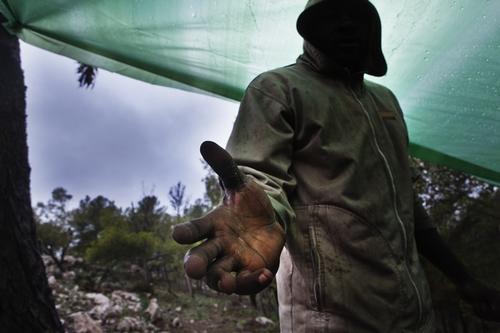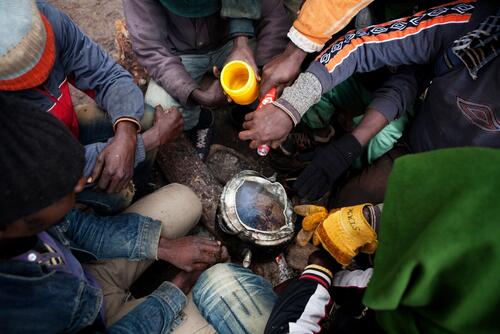Executive Summary
Over the last ten years, as the European Union (EU) has tightened its border controls and increasingly externalised its migration policies, Morocco has changed from being just a transit country for migrants en route to Europe to being both a transit and destination country by default. MSF’s experience demonstrates that the longer sub-Saharan migrants stay in Morocco the more vulnerable they become. This preexisting vulnerability, related to factors such as age and gender, as well as traumas experienced during the migration process, accumulates as they are trapped in Morocco and subjected to policies and practices that neglect, exclude and discriminate against them.
MSF’s data demonstrates that the precarious living conditions that the majority of sub-Saharan migrants in Morocco are forced to live in and the wide-spread institutional and criminal violence that they are exposed to continue to be the main factors influencing medical and psychological needs. MSF teams have repeatedly highlighted and denounced this situation, yet violence remains a daily reality for the majority of sub-Saharan migrants in Morocco. In fact, as this report demonstrates, the period since December 2011 has seen a sharp increase in abuse, degrading treatment and violence against sub-Saharan migrants by Moroccan and Spanish security forces. This report also reveals the widespread violence carried out by criminal gangs, including bandits and human smuggling and human trafficking networks. It provides a glimpse into the shocking levels of sexual violence that migrants are exposed to throughout the migration process and demands better assistance and protection for those affected.
These unacceptable levels of violence should not overshadow the achievements that have been made in recognition and respect for sub-Saharan migrants’ right to health over the last ten years. Progress has been made, however considerable challenges remain, particularly with regard to non-emergency, secondary care, care for people with mental health problems and protection and assistance for survivors of sexual violence. Further investment and reform of the healthcare system is needed, however the impact of the progress made to date and any future reforms will be limited unless concrete action is taken to address the discrepancy between European and Moroccan policies which view migration through a security prism and criminalise, marginalise and discriminate against sub-Saharan migrants in Morocco and those which protect and uphold their fundamental human rights.
This report highlights the medical and psychological consequences of this approach and the cumulative vulnerability of the significant numbers of sub-Saharan migrants who are trapped in Morocco. In doing so it calls, once again, on the Moroccan authorities to respect their international and national commitments to human rights, develop and implement protection mechanisms and ensure that subSaharan migrants are treated in a humane and dignified manner, no matter what their legal status.





